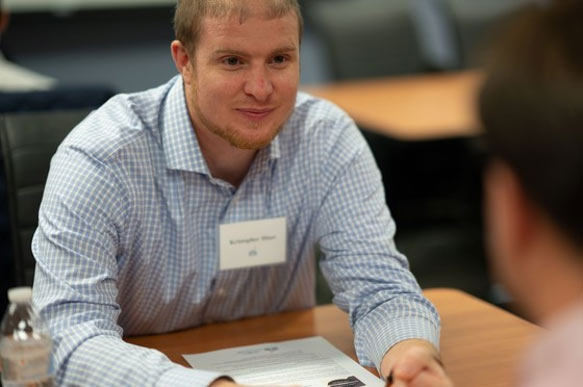The Need for Civil Discourse is Greater than Ever

by Professor JoAnn Koob

We live in a culture where everyone is talking and no-one is listening; a political environment where debate has given way to inflammatory attacks that promote polarization over compromise. Character assassination has become the norm in political life, not the exception. If you don’t agree with me, you are not only wrong, you are inherently bad. The assumption that those with differing ideas must have ill intentions is running rampant in the news media, politics, social media, and even in the academy.
Justice Scalia famously said, “I don’t attack people. I attack ideas.” He was known for his long friendship with Justice Ruth Bader Ginsburg, not because they agreed on most cases, but because they respected each other, relished robust debates, and enjoyed each other’s humor. Off the bench, they spent time with each other’s families and shared a love of opera. They were united both by their similarities and their differences.
Justice Ruth Bader Ginsburg wrote: “If our friendship encourages others to appreciate that some very good people have ideas with which we disagree, and that, despite differences, people of goodwill can pull together for the well-being of the institutions we serve and our country, I will be overjoyed, as I am confident Justice Scalia would be.”

Once upon a time, these unlikely friendships were not uncommon. There is the well-known Tip O’Neill-Ronald Reagan bond. These two formidable leaders would argue fiercely by day and then share drinks and laughter after hours, bonded as much by their Irish roots as by anything else. Today we don’t see many cross-partisan friendships and few examples of respectful, thoughtful debate. Cable news caters to our basest instincts, dividing the world into ‘bad guys’ and ‘good guys’. Debates in Congress have devolved into name-calling brawls, better suited to a boxing ring than to the floor of the U.S. Capitol. The assumption seems to be that if you don’t agree with me on important policy issues, you are morally inferior; Not ‘your policies are morally inferior,’ but ‘you are.’ Words like liberal and conservative have been weaponized. Labeling rather than listening has become the norm.
To counter this trend, Scalia Law School’s Liberty & Law Center recently launched a program, Discussion Over Division, to give our students the necessary tools to counter the prevailing culture of labeling, silencing, and contempt for those who don’t share our ideology or opinions. This program provides a much-needed outlet for civil discussion and respectful debate.

The Discussion Over Division initiative trains students to listen carefully to another viewpoint, while defending their own point of view with grace and verve. This is done through one-on-one and roundtable discussions between students with differing viewpoints, guest speakers on civil discourse, and model debates. At Scalia Law, we believe that these exercises not only prepare students to be better lawyers, who know how to argue all sides of a case, but also to be better citizens, prepared to engage in fruitful dialogue with people who don’t agree with them.
At Scalia Law School we believe that an open marketplace of ideas provides the best foundation for learning. In honor of our namesake, Antonin Scalia, we don’t encourage ideological uniformity, but robust, respectful debate. We encourage discussion over division. As a result, Scalia Law students will go into the world prepared to challenge a fractured culture, ready to restore civility to civil society.